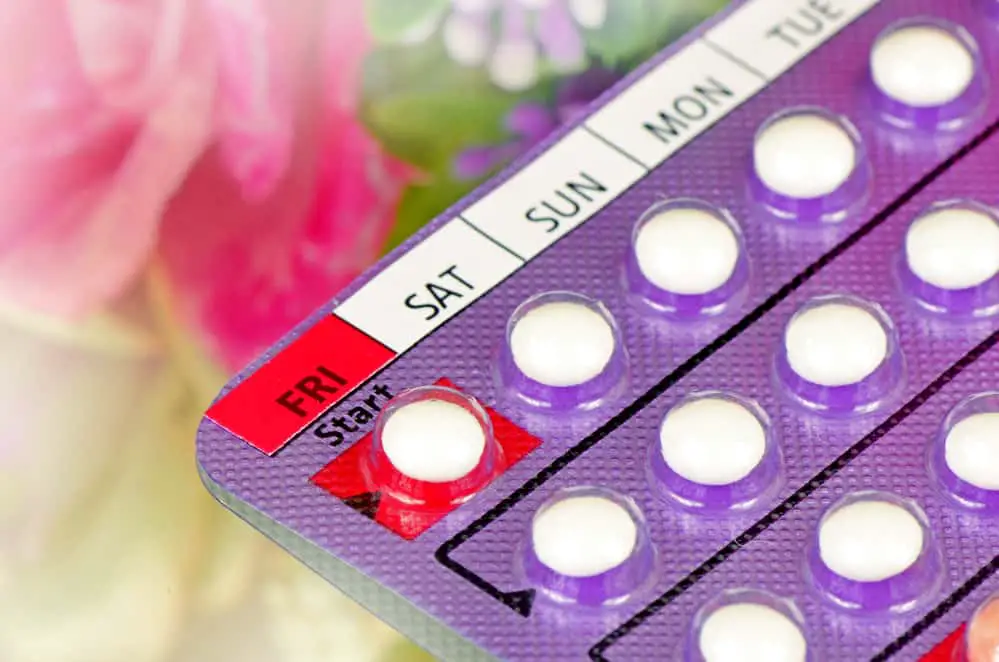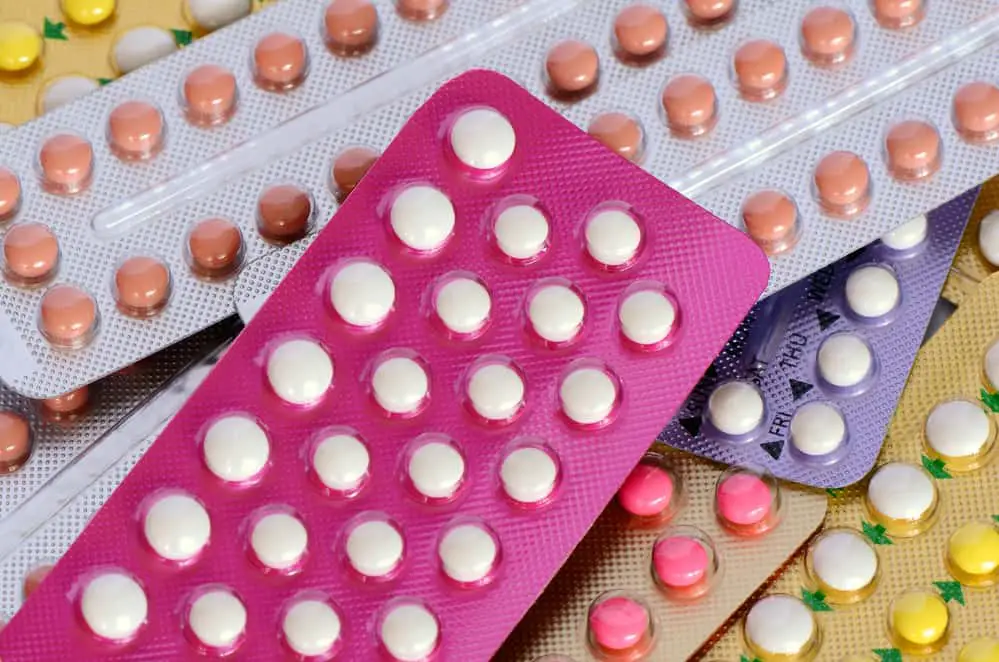There is an ongoing argument on whether birth control causes or reduces acne.
For example, many people who tried birth control came back with a favorable report of how it has helped get clearer skin. On the other hand, there are reports of people whose acne got worse after trying birth control.
Hence, the need for the argument about whether birth control causes acne?
So, can birth control cause acne? The two categories of people who did and did not experience more acne breakout after using birth control are right. This assertion is that birth control does contribute to acne in some people and does not contribute to it in some. We used “contribute” here because birth control does not cause acne. In fact, it is known to do more good than harm. However, people are different, and the way each person responds to treatment is different. Therefore, the result will vary from one person to another.
Birth control and acne are linked with male and female hormones, especially androgen and testosterone. Most of the hormones are active during puberty, pregnancy, and menstruation. As a result, acne breakout is common during these stages.
So, it is safe to say that any birth control technique that can disrupt these hormones’ normal functioning can contribute to acne breakout. This is simple, right. This explanation is one of the simplest you will get as to why birth control causes acne breakout in some and doesn’t cause it in others.
Birth Control And Acne
The adrenal gland and ovaries produce androgen, a group of hormones responsible for producing sebum.
Sebum or oil is produced to lubricate the pores and the skin. Not just this, it is designed to transport dead skin cells out of the body.
When your skin is clear, it means that the adrenal gland produces the perfect amount of androgens. When androgens are produced in excess, it prompts the body to make much oil. Sadly, excess oil will clog the pores. When a clog like this occurs, it aids bacteria growth and triggers acne.
Hormonal birth control affects hormonal levels. As expected, when the levels are affected, it will affect how the body works.
As we explained, acne is caused by a high androgen level since it will stimulate more oil production and clog the hair follicles. More androgen, especially testosterone, leads to more breakout.
Most birth control pills contain progesterone and estrogen, female hormones that prevent the ovaries from releasing an egg. The hormones also help to balance excess androgens, and as a result, seem handy for preventing acne breakout over the long term.
However, the combined factors of hormones change during the menstrual period, and the ones that happen with the pill can increase your risk of acne.
The menstrual cycle affects hormones. During this period, the number of estrogens and androgen produced by the body will fluctuate. Women generally reach their highest androgen levels a few weeks before menstruation starts and lasts till the end of their period.
During this time, estrogen will increase significantly while the progesterone will reduce to its lowest point. In the few days leading up to your period, a high androgen concentration will circulate through the body. By implication, it can cause the body to produce excess oil and cause an acne breakout.
Hence, if you just started birth control, it is considerably easy to connect the dots and pin birth control as the culprit.
One thing, though, birth control pills that only contain progestin and don’t contain estrogen can cause a fluctuation in the androgen levels. As a result, it can increase your risk of hormonal acne. So, yes. A progestin-only birth control pill or mini pills can contribute to hormonal acne.
To break it down, estrogen can improve your acne, while progestin and androgen can increase your chances of a breakout. Hence, birth control pills that don’t have estrogen can contribute to a breakout.
Acne flare-ups can also be expected in women who just started birth control since the body needs time to adjust to the hormones.
Using Birth Control As An Acne Treatment
Doctors, backed by the FDA, have been recommending oral contraceptives as acne treatments for a while. Although the treatments are designed for birth control purposes, they are also handy for use against acne.
Every woman’s body produces androgenic hormones like testosterone in small amounts. Now, you might be wondering, while testosterone, since it is a male hormone? Testosterone is needed for optimal health and wellbeing. For example, it helps bone health, muscle development, and sex drive. Hence the need for it.
More importantly, for acne, testosterone regulates oil production. When the adrenal glands and the ovaries produce it in excess, it can cause your skin to become more oil.
The higher the levels of androgens like testosterone, the more your chances of having a breakout. Hence, birth control pills with high estrogen and progesterone reduce the number of androgens in your body.
There are different types of control pills and methods. However, the FDA has approved three for treating acne. All three are a mixture of oral contraceptives; hence they contain a mix of progestin and estrogen. Any control pill that contains progesterone only can make your acne worse. The approved pills include:
Estrostep: Estrostep combines estrogen with norethindrone, a progestin, and is available in different doses. It increases sex-hormone-binding globulin to decrease levels of free testosterone in the body.
Ortho Tri-cyclen: This drug, like the one we mentioned earlier, combines estrogen with another progestin called norgestimate. Like other progesterone, it lowers androgen levels like testosterone to prevent, treat, and control hormonal acne.
YAZ: the last of the three is YAZ, which uses estrogen combined with drospirenone, a progestin form. It allows anti-androgenic activities; hence, it can reduce acne. However, the FDA admits that it can increase the risk of blood clots.
How Should You Use Oral Contraceptives?
Although the three oral contraceptives are approved for treating acne, they are only handy for treating mild and moderate acne in women who have started menstruation.
Sometimes, doctors prescribe them for severe acne, but it is usually under supervision. There are also other birth control products that you can use for treating acne; however, they are prescribed. In essence, you shouldn’t pick just any pill and attempt to use it since there are known side effects.
If you are already using one that is working well for your acne, there is no need to switch to a new product. However, if this is your first time, you might need expert advice to try out the three approved acne treatment options.
However, it is quite possible to have an initial flare-up when you start taking the pills.
Risks Of Birth Control Pills
Most birth control pills today contain lower doses of progesterone and estrogen than they had in the past. However, they are also side effects like depression, mood changes, migraine headaches, hypertension, and liver diseases.
The best approach to using anything contraception related is to seek a medical opinion. Not only will your doctor recommend the product to use, but it will also be based on your health history, acne severity, and your general need.
Each control pill contains different progestins. As a result, you can experience mild differences between different pills. It is also common for your acne to clear longer even after using the recommended products for acne.
If your acne does not respond to the treatment, your doctor can recommend using antibiotics, retinoids, and other medications that can be used together with birth control or alone.
Nonetheless, some people should avoid using birth control pills. The reason for this is that oral contraception can worsen certain medical conditions. Hence, you shouldn’t use birth control pills if you:
-
Have a history of cancer, liver disease, diabetes, or blood clotting disorder.
-
Heart disease, migraine headaches, blood clots in the lungs and legs, and hypertension.
-
A smoker over 30 years or if you are physically immobilized.
-
Severe obese, breastfeeding, or pregnant.
-
Haven’t reached puberty, pregnant, or trying to get pregnant.
For the best result, we recommend that you use only the oral contraceptive recommended by your doctor. If there are other recommended acne treatments, you can keep using them.
However, precisely follow the schedule for taking the pills for effectiveness and safety. If you notice side effects, talk to your doctor immediately. Not just the side effects, let your doctor know if you are taking any other medication that may interfere with the birth control pills. You can also consider a non-hormonal form of birth control with your doctor.
Conclusion
Acne is caused by something far greater than birth control. However, birth control can be a contributing factor, and one of the pieces that complete the big picture. Hence, before deciding whether you should use an oral contraceptive or not, speak to your doctor to know the risk involved.
Notwithstanding, there are also cures and remedies for clearing, preventing, and controlling acne besides birth control.
In this series –


